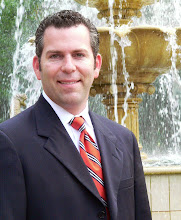 "I kept the rule of my order so strictly that I may say that if ever a monk got to heaven by his monkery it was I." Martin Luther
"I kept the rule of my order so strictly that I may say that if ever a monk got to heaven by his monkery it was I." Martin LutherPerhaps because of his own difficult background, Juan pictured our life in Christ as a journey—a spiritual road where the initiate or beginner climbs ever higher through difficulties ultimately to union with God. But that journey is one that takes us through the darkness. We sang earlier with Kim and the team, sometimes the road is marked with suffering, is it not? San Juan de la Cruz says that there are times when the road is a dark one. His famous phrase is the “dark night of the soul.” Perhaps you knew that the great Polish Cardinal who became Pope John Paul II wrote his doctoral dissertation on the concept of faith in St. John of the Cross. He points out that for Juan “Faith is night.” Night is the emptiness that reveals our desire for the world and its pleasures. Night is that which weans us from our desire and attachment to wordly things. Faith in the dark Night reminds us that our attachment to lesser things often prohibits our union with the greatest thing—God himself.
In my own life it has been the loss of things dear to me—it has been the tragic loss of innocence, the loss of status,—the loss of income and of certainty and of a sense of control—these losses that were black as the night sky—wherein God has shone more brightly than ever.
I'm wondering how your faith journey has been...has it been an Eternal Sunshine of the Spotless Mind? Or the active night of faith? Let me know!










